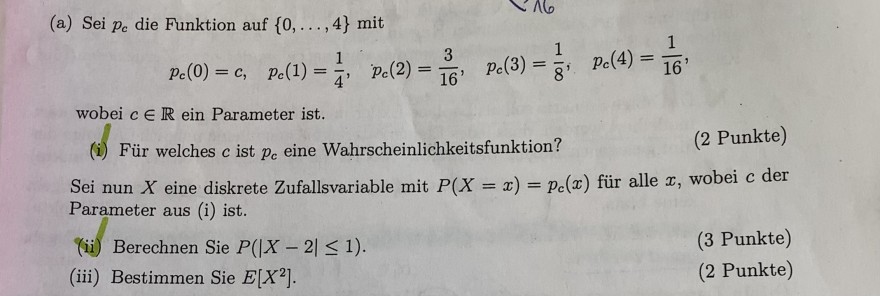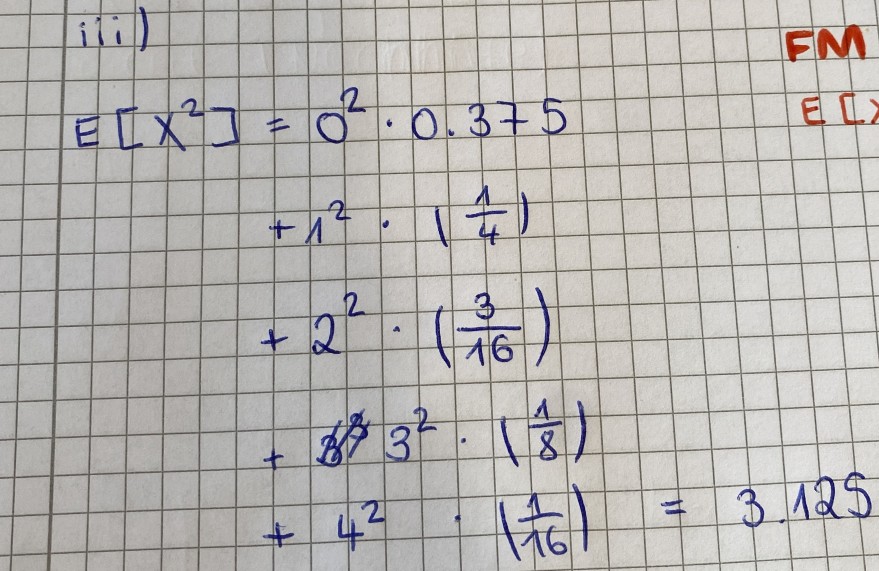Aufgabe:
Ist hier die Formel E[X^2] = x^2 * p(x) anzuwenden?
Problem/Ansatz:
Also ist mein Rechenweg bei Nummer iii) so richtig?

Text erkannt:
(a) Sei \( p_{c} \) die Funktion auf \( \{0, \ldots, 4\} \) mit
\( p_{c}(0)=c, \quad p_{c}(1)=\frac{1}{4}, \quad p_{c}(2)=\frac{3}{16}, \quad p_{c}(3)=\frac{1}{8}, \quad p_{c}(4)=\frac{1}{16}, \)
wobei \( c \in \mathbb{R} \) ein Parameter ist.
(i) Für welches \( c \) ist \( p_{c} \) eine Wahrscheinlichkeitsfunktion?
(2 Punkte)
Sei nun \( X \) eine diskrete Zufallsvariable mit \( P(X=x)=p_{c}(x) \) für alle \( x \), wobei \( c \) der Parameter aus (i) ist.
(ii) Berechnen Sie \( P(|X-2| \leq 1) \).
(3 Punkte)
(iii) Bestimmen Sie \( E\left[X^{2}\right] \).
(2 Punkte)

Text erkannt:
\( \begin{aligned} E\left[X^{2}\right] & =0^{2} \cdot 0.375 \\ & +1^{2} \cdot\left(\frac{1}{4}\right) \\ & +2^{2} \cdot\left(\frac{3}{16}\right) \\ & +3^{2} \cdot\left(\frac{1}{8}\right) \\ & +4^{2} \cdot\left(\frac{1}{16}\right)=3.125\end{aligned} \)